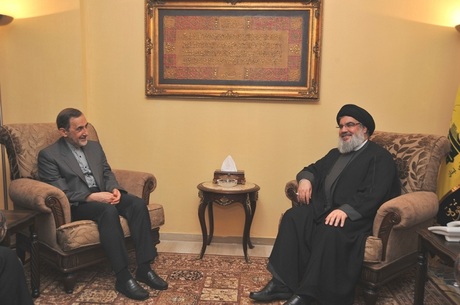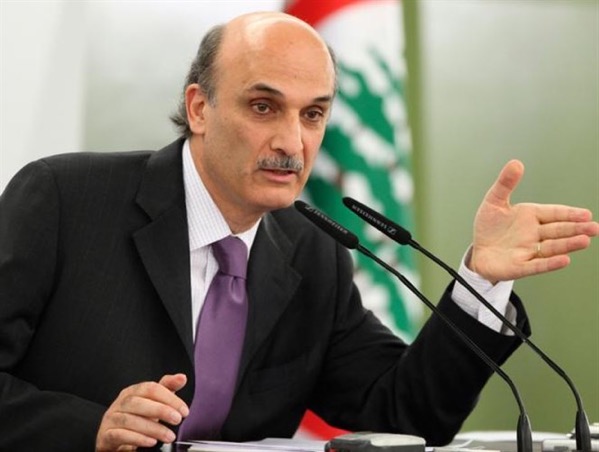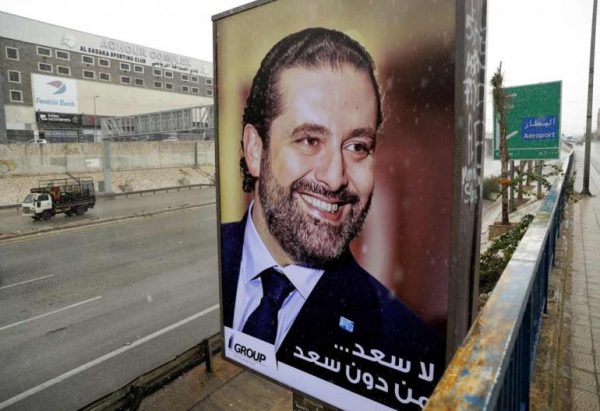
A senior Iranian official on Tuesday hailed the “victory”o f its Hezbollah militant group in Lebanese elections , calling it a success in the “fight against Israel” and the United States, a state broadcaster reported.
“The Lebanese people and their representatives, Hezbollah and the other resistance groups, scored this victory in the fight against Israel and its allies, including the United States,” said Ali Akbar Velayati, foreign policy adviser to supreme leader Ayatollah Ali Khamenei.
He credited Hezbollah’s military support for Syrian President Bashar al-Assad for the the election result .
Hezbollah was created by the foreign branch ( al Quds force ) of Iranian Revolutionary Guard in 1982 to fight against Israel and is listed as a “terrorist organization” by the United States and several other countries including the Arab Gulf countries.
It is the key partner in Iran’s “resistance front” against Israeli and U.S. interests in the Middle East, along with allies in Iraq, Syria and Gaza .
“The strength of the resistance front will be considerably reinforced in the world” after this election and that in Iraq on Saturday, Velayati said.
Mission acccomplished
His comments come after Hezbollah chief Hassan Nasrallah declared the election result as a “political and moral victory” for the resistance, as it refers to itself and its regional allies. In a televised address, Nasrallah said “the parliamentary presence” created by Hezbollah and its allies would guarantee the protection of the “resistance”.
Nasrallah said that the “mission is accomplished” after weeks of campaigning.
Nasrallah did not say how many seats his group and its allies won, but early results show that Hezbollah’s bloc now has 13 members, one more than before.
Less than half the Lebanese voted
Sunday’s vote had its fair share of surprises, including the undermining of Saad Hariri and the victory of forces like the pro-Iranian Hezbollah-Amal tandem which won 26 out of 27 seats reserved for the Shiite religious community despite Hezbollah’s losses in Syria (around 2,000 dead), an economic crisis that has particularly hit Shiite middle and working classes.
Lebanon’s legislative elections have defied most prognoses, which foresaw a ballot without surprises – as much in terms of the order of events as in the results.
With the introduction of a proportional voting system, experts were anticipating voter enthusiasm that would bring about record participation. But what happened was the opposite: the participation rate was unusually low, with only 49.2 percent of voters heading to the polls, compared with 54 percent during the previous election in 2009.
The introduction of a proportional vote has in fact allowed the election of influential Sunni personalities close to Hezbollah, which had been marginalised by the majoritarian electoral system that had previously been in place. “Political pluralism had been normalised within the Sunni community, whose representation had been monopolised by the Hariri family’s Future Movement for more than 20 years,” according to political analysts.
With its own seats, its allies in other parties, and sympathetic independent Sunni personalities, the Shiite tandem reached 42 seats – a third of parliament. This will allow it to block a quorum on issues deemed to be of national interest or during the presidential election. No big decision likely to modify the fundamental equilibria in Lebanon can be taken without its knowledge and approval.
Samir Geagea
 The second biggest winner of these elections is the Lebanese Forces (LF) Christian party, closely aligned with the regional aims of Saudi Arabia and the United States, and Hezbollah’s main critic, as it denounces the continued existence of the Shiite movement’s armed wing and its participation in the Syrian war alongside the Assad regime.
The second biggest winner of these elections is the Lebanese Forces (LF) Christian party, closely aligned with the regional aims of Saudi Arabia and the United States, and Hezbollah’s main critic, as it denounces the continued existence of the Shiite movement’s armed wing and its participation in the Syrian war alongside the Assad regime.
With 15 deputies, the LF has nearly doubled the size of its parliamentary bloc. The group, which operated as a militia in the 1975-1990 civil war, was banned during the Syrian control of Lebanon until 2005. LF leader Samir Geagea was jailed from 1994 to 2005 after being accused of wartime assassinations.
Going forward, the LF can now pride itself in being the country’s second Christian party, with a presence in all Lebanese regions. Its bloc now grants it the role of tie-breaker in the upcoming parliament, a role that had been held for years by PSP leader Walid Jumblatt.
The LF’s spectacular breakthrough places it at the centre of the national political chessboard, to Hezbollah’s great displeasure.
Several advisors hold FPM leader and Foreign Affairs Minister Gebran Bassil responsible for the LF win
“The Lebanese Forces have harvested the fruits of Bassil’s behaviour,” one analyst waas quoted as saying

Saad Hariri is the biggest loser of these elections. While the incumbent prime minister possesses the most important Sunni bloc in the new assembly, he lost half of the 11 seats up for grabs in Beirut to a list led by Hezbollah
He also did not manage to get rid of his main rival, the former head of the government, Najib Mikati, who obtained four seats in Tripoli, the country’s second-biggest city. The election of several Sunni candidates close to Hezbollah, such as Abd al-Rahim Mrad (West Bakaa), Usama Saad (Saida), Adnan Traboulsi (Beirut), Faisal Karameh (Tripoli), and Jihad al-Samad (North Lebanon), does not make things easier for him.
Many observers blame Saudi Arabia for undermining Hariri’s credibility. Saudi Arabia forced Hariri to resign last November after he was invited to Riyadh. With help from the French president , Hariri managed to leave Saudi Arabia and pulled back from his resignation as prime minister, after a three-week international drama. Saudi Arabia has since given up on Lebanon and has been focusing on its internal situation.
Agencies

Leave a Reply
You must be logged in to post a comment.